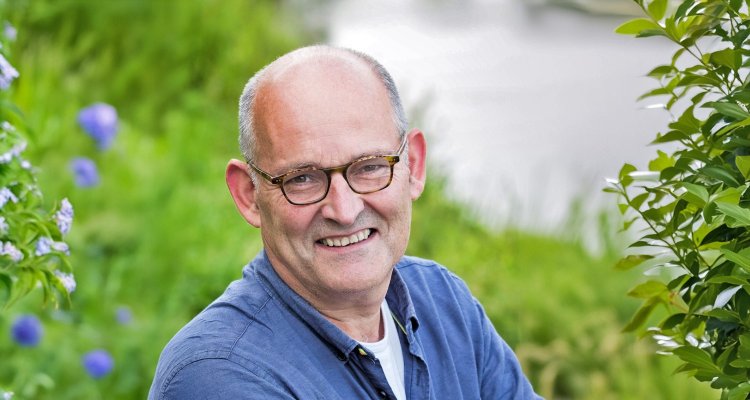
News
Professor of Regenerative Grassland Systems: 'Grasslands have more functions than many people think'
The Executive Board has appointed Nick van Eekeren Professor by special appointment for Regenerative Grassland Systems in the Farming Systems Ecology chair group of Wageningen University and Research (WUR) as of 1 September 2024. The position is supported by the Louis Bolk Institute and Triodos Foundation.
"Grasslands are not only for milk production," says Van Eekeren. "This type of land use also plays an important role in challenges related to climate, water quality and biodiversity. In general, grasslands often outperform arable land in terms of soil quality, carbon storage and biodiversity. With all these useful functions (ecosystem services), grasslands also give extra purpose to ruminant systems."
Grasslands are not only for milk production
Ruminants convert grass into high-quality food. This comes with unwanted emissions of greenhouse gases and nitrogen, loss of biodiversity and erosion due to improper grazing. "Improvements can be made by increasing the diversity of grasslands with nitrogen-fixing clovers and herbs. It’s important to increase the longevity of these multi-species grasslands and to adapt grazing systems to promote both the build-up and restoration (regeneration) of ecosystem services," Van Eekeren explains.
Nick van Eekeren (Helmond, 1966) worked on a nearby dairy farm from an early age. Following this interest, he studied Tropical Animal Husbandry and Grasslands in Wageningen. "The importance of grasslands in combination with livestock production, as part of the agricultural food system, still fascinates me," says the scientist.
Connecting practice and science
Van Eekeren worked for the Ministry of Foreign Affairs in Asia and Africa for several years. In Pakistan, he was involved in a forestry project focused on agroforestry and regenerative grazing systems. In Burkina Faso, he helped set up a participatory research programme as part of the agricultural extension service. The experience with participatory research (exchange between practice and science) prompted him to join the Louis Bolk Institute in 1997 to work on 'The farmer as experiential scientist’ project. At this independent knowledge institute, Van Eekeren completed his PhD on the effects of grassland management on soil biota and ecosystem services. At the Louis Bolk Institute, he remains active as senior research associate and coordinator of the Sustainable Livestock and Agrobiodiversity section, where he works with 20 colleagues on improving the sustainability of dairy farming.
"Congratulations to Nick van Eekeren on his special appointment as Professor of Regenerative Grassland Systems at Wageningen University & Research,” says Director Richard Harrison from the Plant Sciences Group in Wageningen. With his extensive international experience and expertise, Nick is positioned to drive innovation in sustainable farming practices. This appointment reflects the strong collaboration between WUR and the Louis Bolk Institute."
Important challenge
Van Eekeren talks enthusiastically about his new part-time position: "Grasslands, with their ecosystem services, will continue to play a vital role in the future agricultural food system. The challenge is to optimise and better exploit the positive interactions between grasslands, ruminants, soil quality and biodiversity. Together with the Farming Systems Ecology chair group at Wageningen University & Research, I want to study these interactions and translate them in farming systems that work."